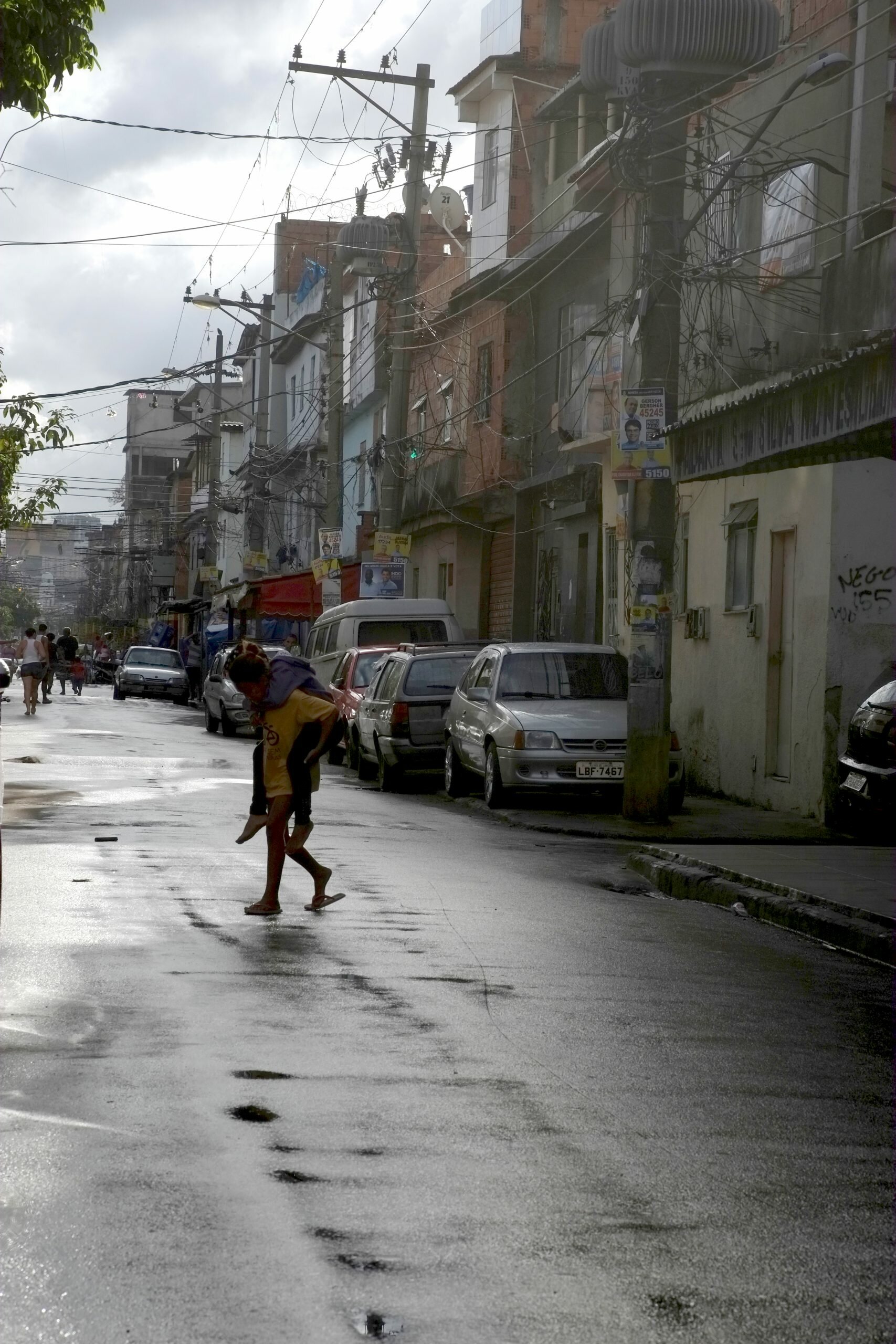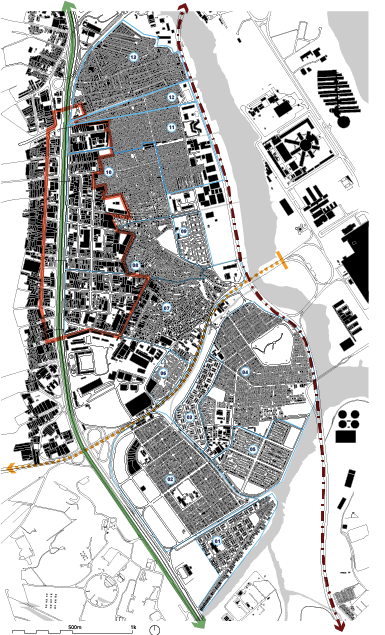Under the theme “All the Worlds. Just one World. Architecture 21”, the 27th UIA Congress which was hosted by the city of Rio de Janeiro, Brazil, invited students from all over the world to think about interventions that could integrate a portion of the Complexo da Maré – a cluster of favelas in the north of the city – with the rest of the city, with proposals in line with UN’s Sustainable Development Goals (SDGs), in particular Goal 11, which is to make cities more inclusive, safe, resilient and sustainable.
Rio's favelas are over 100 years old and can be defined as spaces of popular, spontaneous urbanization where infrastructure and urban services are, in general, precarious. In the favelas, low-income populations have settled in search of better locations, access to jobs and services – and of their right to the city. Over the years, they have become places of high vulnerability and insecurity, due to the strong presence of narco criminal groups, and militias.
But, at the same time, one finds in the favelas a vastly rich culture, from graphic arts to theatre, from samba to funk, from fashion to literature. A culture of collective movements and local leaders, which together have shown these places as true cultural powershouses. In any case, we must emphasize that in the spaces of the favelas there are still numerous inequalities that must be addressed by the public authorities.
Rio de Janeiro has a long experience in favela upgrading, including the Favela-Bairro, a very successful pioneer programme implemented in the 1990s and which lasted approximately 10 years. It essentially consisted of providing the favela's territory with infrastructure and requalifying public space. However, the lesson learned was that simple re-urbanization would not be enough to address the complex issues of these territories.
One of the challenges posed by the competition was how to respond to demands for social, economic and environmental improvements, considering the role of local forces and public authorities in an orchestrated manner.
Maré grew along one of the most important highways in the city, Avenida Brasil, and through successive landfills over the waters of Guanabara Bay. Alongside of Avenida Brasil were located mainly industrial plots, which with the expansion of the metropolis, were transferred to more peripheral areas, leaving empty and underused areas on the highway's fringes.
It is in this context that the International Ideas Competition for Architecture Students MARÉ-CIDADE invited students to propose interventions in the Complexo da Maré region, considering the empty lots of its surroundings, to seek innovative solutions for sustainable urbanization that improve the quality of life of its population.
The basis of the competition was developed by a multidisciplinary team that included representatives from the Instituto de Arquitetos do Brasil (IAB-RJ), and from the local NGOs Observatório de Favelas, and Redes da Maré. The process was led by Fabiana Izaga and Pablo Benetti, and coordinated by Thiago de Soveral and Rodrigo Bocater, with the approval of the UIA.
The Competition coordination received 186 entries from all over the world. The jury, composed of architects Alejandro Echeverri (Colombia), Elkin Velazquez (UN-Habitat Regional Director for Latin America and the Caribbean), Gustavo Utrabo (Brazil), Nadia Tromp (South Africa) and Verena Andreatta (Brazil/Spain) selected 6 proposals – three awards, and three honorable mentions. The honorable mentions were named after important architects from Rio: Demetre Anastassakis, architect who excelled in the production of social housing; Luiz Paulo Conde, former mayor and secretary of urbanism in Rio; and Roberto Burle Marx, the talented and internationally acclaimed landscape artist.
We would like to thank all those who collaborated in the construction of this International Ideas Competition, especially the Observatório de Favelas da Maré, and congratulate the members of the six awarded teams, in the hope that the topics and strategies presented may provide valuable insights, not only to Maré, as well as to many informal territories in other cities around the world.
Fabiana Izaga, Pablo Benetti, Rodrigo Bocater, Thiago Soveral - Competition Committee
Competition Committee
 PT
PT 

